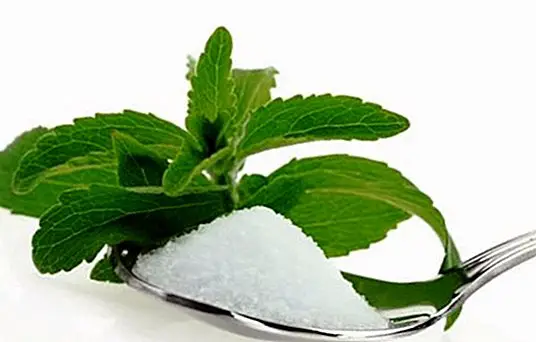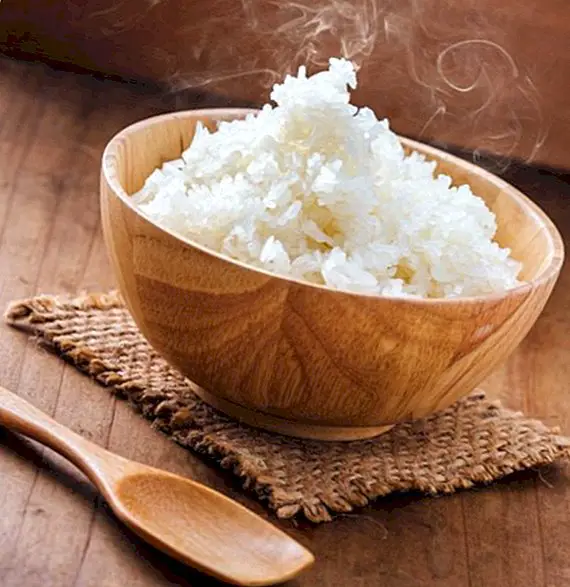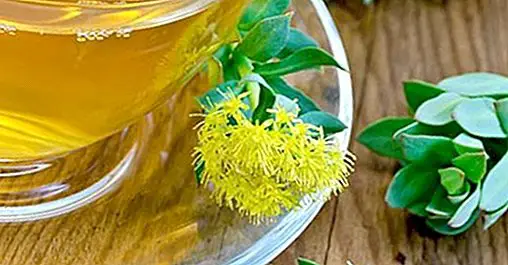Why replace white sugar with stevia
For some years it has become very fashionable to use certain natural sweeteners as substitutes and much healthier alternatives to white sugar. Or, almost better said, certain sweeteners or natural sweeteners whose existence is actually quite long became popular.
Such is the case of honey, very rich in essential nutrients and extremely healthy within a varied and balanced diet, sugarcane juice and fructose from fresh fruits. We can also mention certain juices and syrups, such as maple syrup or agave syrup.

All these sweeteners have a series of characteristics in common. And is that, unlike white sugar that only provides empty calories (ie, provides calories but no essential nutrients), this type of sweeteners are mostly very rich in different nutrients, and also tend to provide many benefits to our Health.
A good example is the stevia, a plant native to Paraguay, already known by the ancient Indians with the name "Ka'a he'e", Which means" sweet grass ".
What is stevia?
As we indicated briefly in the previous section, the stevia is a plant of South American origin known scientifically with the name of Stevia rebaudiana. It is a plant that already has a long history on the part of the Guarani people, being very used by them for more than 1,500 years.

On the other hand, stevia leaves have been used as a sweetener for teas and medicines for hundreds of years in other countries, such as Brazil or Paraguay. It was widely used both for medicinal purposes and as a sweetener for certain beverages, among which we can mention the popular yerba mate.
Despite its widespread use, did you know that it was not until 2008 when the products made with this plant as an additive for food were approved in the United States? Incredible as it may seem, in the European Union this did not happen until 2011.
For the use of stevia as a sweetener, a process similar to the extraction of sugar is followed: the dried leaves of the plant are soaked in the same way as if it were tea, and then separated or purified. steviol glycosides, which are considered to be the best sweet-tasting compounds of the plant.
What are the benefits of stevia?
- Help lower blood pressure: In a research carried out in China it was found that stevia helped reduce high blood pressure levels. In this study, the group of participants who took stevioside their systolic pressure was reduced from 150 to 140 mmHg, while the diastolic low from 95 to 89 mmHg.
- Reduces high cholesterol levels: in case of high cholesterol, the consumption of stevia as a sweetener would be advised, since some scientific studies have found that stevia helps reduce high levels of LDL cholesterol.
- Helps prevent heart disease: fundamentally because, as we have seen in the previous sections, it helps when it comes to reducing high blood pressure and also high levels of fats in the blood.
- I would fight diabetes: in a scientific study carried out in people with diabetes, those who took stevioside saw their blood sugar level reduced by 18%. In this sense, it seems that this sweetener increases the production of insulin, making the cells more sensitive to their effects.
Why should we replace white sugar with stevia?
As we saw on a previous occasion where we explained why eliminate white sugar from the diet, the truth is that in reality refined white sugar is a little or nothing recommended sweetening option, mainly because it only provides empty calories and practically no essential nutrients.
Among other aspects, white sugar favors overweight and obesity by producing spikes of insulin that can not be stored finally glucose becomes fat reserves. With the risk that this implies, given that it increases the risk of suffering cardiovascular problems, among other aspects.

It also needs to assimilate and metabolize calcium and vitamins of group B, so it tends to 'steal' nutrients and also promotes demineralization and loss of vitamins in our body.
However, as with other sweeteners, for example, it is the case molasses cane, the panela or own Brown sugar in itself, unlike refined white sugar that only provides empty calories and no benefit, Stevia does provide certain qualities useful for our health.
Therefore, if you are currently a regular consumer of white sugar, why not try to substitute it little by little for other sweetening options? We not only talk about stevia, but also other natural sweeteners that in fact have more sweetening power than the refined white sugar itself, which means that you will only need a small part to sweeten your drinks and food compared to the amount needed to sweeten with white sugar.
Images | hardworkinghippy / This article is published for informational purposes only. It can not and should not replace the consultation with a Physician. We advise you to consult your Trusted Doctor. ThemesSugar



